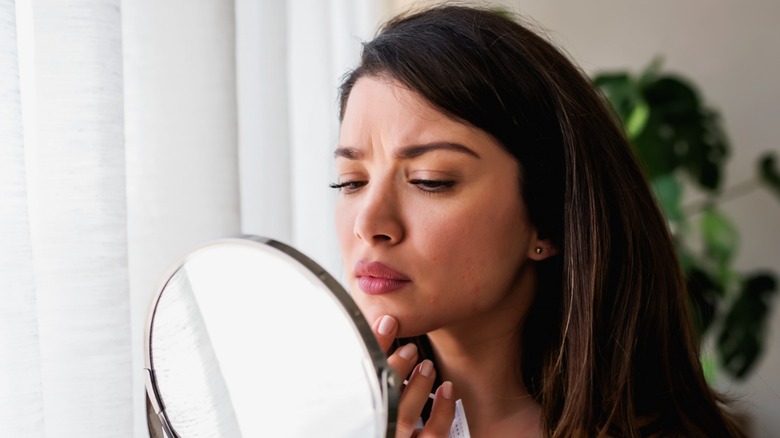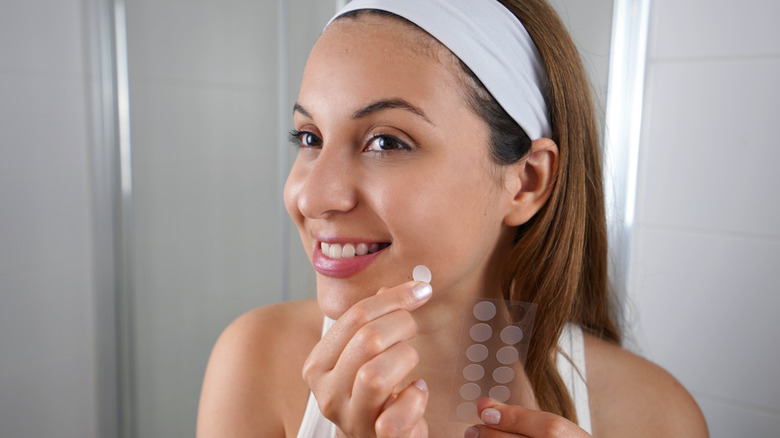How To Effectively Treat Adult Acne
Adult acne sneaks up on you when you least expect it. A glaring pimple pops up in one location, and then before you know it, another one makes an appearance. It doesn't matter how strict your skin care regimen is — adult acne is becoming more in common for women in their 20s and 30s, per Allure.
If you're consistently breaking out, taking the time to investigate why is important. Glamour makes the distinction between adult acne and minor breakouts clear: A stray pimple every now and then is often the result of bacteria buildup on your pillowcase or over-exfoliation, while adult acne is more stubborn. According to Everyday Health, stress and hormone changes are two factors that offset acne. Even something as simple as touching your cell phone's screen to your face can cause an angry flareup.
According to Bustle, where your flareups appear directly correlates to your health. Pimples on your lower face often signify a hormone imbalance, and acne around your mouth can be a sign of PCOS — though it's not definite.
But getting acne in your 20s and 30s doesn't have to feel like an uphill battle. With the right products and ingredients, managing your breakouts is possible.
The best way to combat adult acne
To clear up your acne, Self recommends stocking up on products packed with acne-fighting powerhouses including salicylic, glycolic, and lactic acid. Each of these chemicals are designed to tackle skin issues. When used moderately, salicylic acid gets rid of surface level bacteria and unclogs your pores, the outlet notes. Glycolic and lactic acid also act as exfoliators and promote clear skin. Of the three chemicals, lactic is the most gentle on your skin.
For the best results, you can turn to a mixture of store-bought and DIY treatments. Per Healthline, apple cider vinegar, green tea extract, and tea tree oil greatly reduce acne. These ingredients also reduce the appearance of acne scars.
Bustle strongly suggests tailoring your approach to the underlying cause of your acne. If you have oily skin, for example, stick with beauty products that prevent blackhead formation. For years, beauty aficionados have sworn that eliminating dairy from your diet can lower your risks of developing chronic acne, and, according to one Vogue writer's own experiment, that wound up being true.
Of course, if your acne is persistent and stubborn, seeing a dermatologist is always your best bet, as they can prescribe medications that you can't get over the counter.

